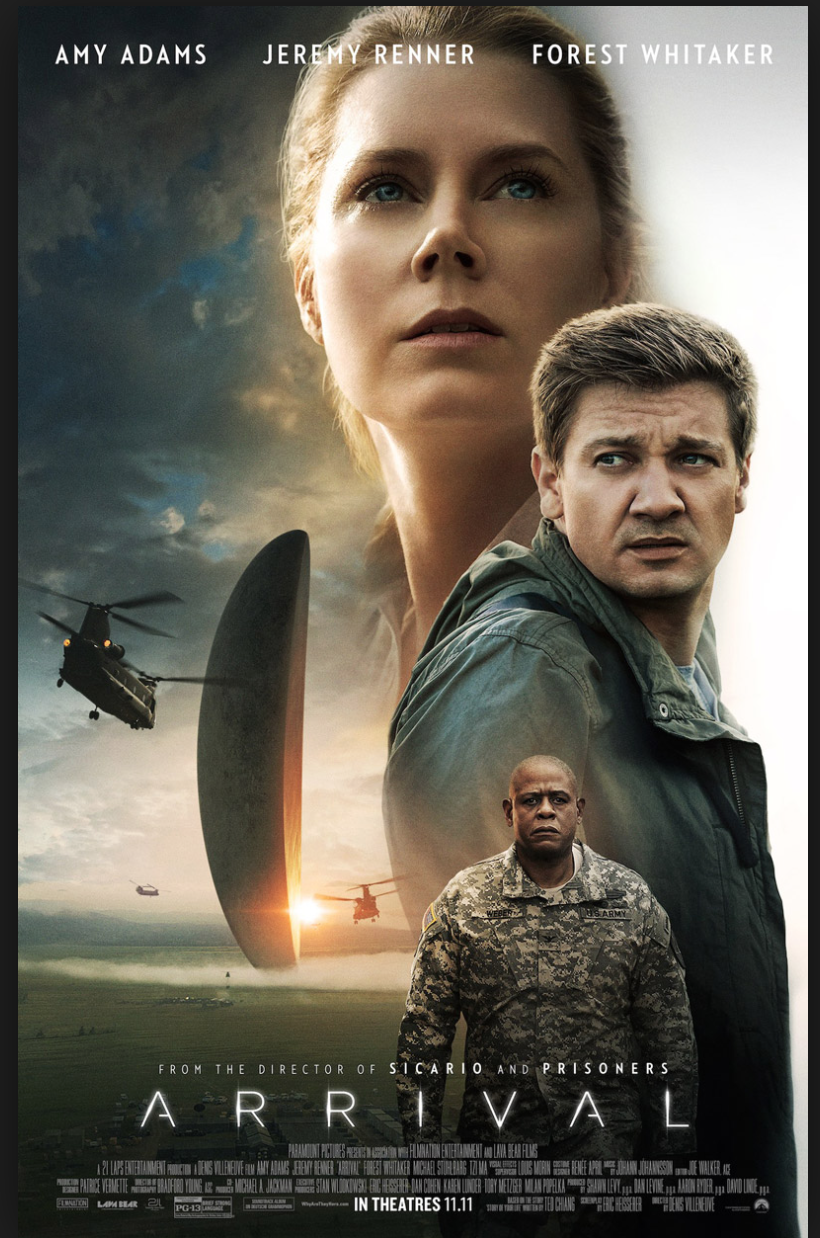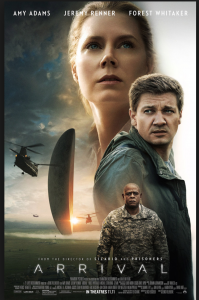Arrival, a beautiful movie
The movie opens with a reverie about time and memory, set in a scene of love, the love a mother feels for her child, and loss. The images fade. Louise, a professor of languages, goes to her university to teach. The students are mesmerized by news on their laptops: twelve shell-shaped black space ships have landed around the world. This happens with slow and quiet dread, not with bombast. Louise is tapped by the military to try to communicate with the aliens.
There follows a thoughtful, absorbing story about the frustrations inherent in communication. Louise is tasked with finding out where they came from and most importantly, why they’re here. But the aliens’ language isn’t even sound-based–it’s written in smoke. The aliens produce feathery circular symbols.
While Louise is on the makeshift military base set up around a shell in Montana, she experiences memories of her beloved daughter, who has seemingly died of a rare, incurable illness.
The secret to the aliens’ language is its oneness. An entire thought complex can be seen at once; their language doesn’t begin and end over a period of time. In the way that language shapes thought, all time is one for the aliens.
And so Louise is feeling and inhabiting this oneness. The closing question is heartfelt and poignant, and one I’ve pondered: If you knew in advance everything in your life, how it would all play out, would you choose to do it anyway?
Losing a child is the hardest thing any parent can face. So if the parent knew beforehand about the loss, would she choose to have the child anyway, just for the journey of loving the child for however many years the child was with her?
A question worth pondering asked by a movie worth seeing.


